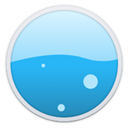Unlocking Efficiency: The Best Docker Compose UI Alternatives
Docker Compose UI provides a minimal HTTP API on top of Docker Compose, aiming for full interoperability with the Docker Compose CLI. It's lauded for its simplicity, deploying as a single container with no dependencies or databases. However, for users seeking more robust features, different interfaces, or specialized functionalities, exploring a Docker Compose UI alternative becomes essential. This article delves into some of the top contenders that can enhance your Docker Compose workflow.
Top Docker Compose UI Alternatives
While Docker Compose UI offers a straightforward solution, the Docker ecosystem is vast, providing various tools that cater to diverse development and deployment needs. From comprehensive management platforms to specialized debugging tools, these alternatives offer unique advantages.

DockStation
DockStation is a powerful developer-centric application designed for managing projects based on Docker. Unlike Docker Compose UI, which primarily focuses on an API, DockStation provides a rich graphical user interface, allowing users to monitor, configure, and manage services without relying heavily on CLI commands. It's a fantastic Docker Compose UI alternative for those who prefer a visual approach to Docker management, available across Free, Mac, Windows, and Linux platforms, and offering robust support for Docker.

Telepresence
Telepresence is an open-source tool that lets you develop and debug your Kubernetes services locally while bridging to a remote Kubernetes cluster. While Docker Compose UI focuses solely on Docker Compose, Telepresence expands its utility to Kubernetes, making it a powerful Docker Compose UI alternative for developers working in hybrid Docker and Kubernetes environments. It is free, open-source, and available on Mac, Linux, and Self-Hosted platforms, streamlining the development workflow by allowing local debugging of remote services.
Choosing the right Docker Compose UI alternative ultimately depends on your specific workflow, desired level of control, and integration with other tools in your development stack. Whether you prefer a comprehensive GUI for Docker management or a specialized tool for Kubernetes integration, the options listed above provide compelling reasons to explore beyond the basic Docker Compose UI.